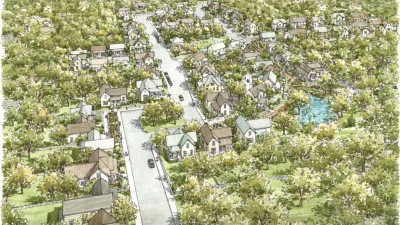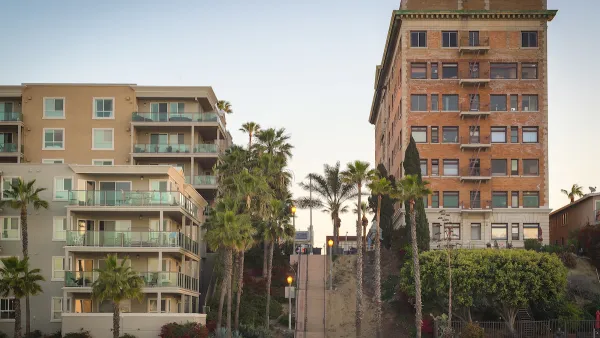Willow Bend is a new, nonprofit development planned for an ecologically rich, 7.6-acre infill site in the Walker Park neighborhood of Fayetteville, Arkansas. The project is envisioned as a replicable model of sustainable and attainable housing.

Once completed, Willow Bend will serve as a pilot project for future attainable housing in the region. The design was completed in 2011 and focuses on a sense of place and the human experience, creating a neighborhood of approximately 78 residential units of mixed types (up from an original 63 single-family homes) that can be loved by its inhabitants for generations to come. This will be accomplished by integrating landscapes, a mix of residences, and neighbors into an urban environment that “reflects a deeper civic meaning and a distinct community character,” according to the project’s design consultant, Community by Design.
The plan for Willow Bend was initially driven by a series of design charrettes conducted by Dover Kohl & Partners in 2006 as part of Fayetteville’s long-range master planning process. In those charrettes, neighbors identified characteristics and goals that form the guidelines for how Willow Bend is designed. Throughout the project, stakeholders, led by the nonprofit Fayetteville Partners for Better Housing, have likewise stressed an equitable focus on economics, culture, and environment in order to meet their goal of crafting a neighborhood that provides citizens making less than 50 to 80 percent of the median income the opportunity to live in town and become homeowners.
Fayetteville Partners for Better Housing—Willow Bend’s developer—collaborated with the City of Fayetteville and the National Center for Appropriate Technologies to obtain funding. Together, they were selected as the recipient of a $500,000 Sustainable Cities Institute Pilot City Program grant, backed by the Home Depot Foundation. Though 37 cities applied for the grant, only two were awarded: Fayetteville and Charleston, South Carolina.
FULL STORY: Unsprawl Case Study: Willow Bend

Analysis: Cybertruck Fatality Rate Far Exceeds That of Ford Pinto
The Tesla Cybertruck was recalled seven times last year.

National Parks Layoffs Will Cause Communities to Lose Billions
Thousands of essential park workers were laid off this week, just before the busy spring break season.

Retro-silient?: America’s First “Eco-burb,” The Woodlands Turns 50
A master-planned community north of Houston offers lessons on green infrastructure and resilient design, but falls short of its founder’s lofty affordability and walkability goals.

Test News Post 1
This is a summary

Analysis: Cybertruck Fatality Rate Far Exceeds That of Ford Pinto
The Tesla Cybertruck was recalled seven times last year.

Test News Headline 46
Test for the image on the front page.
Urban Design for Planners 1: Software Tools
This six-course series explores essential urban design concepts using open source software and equips planners with the tools they need to participate fully in the urban design process.
Planning for Universal Design
Learn the tools for implementing Universal Design in planning regulations.
EMC Planning Group, Inc.
Planetizen
Planetizen
Mpact (formerly Rail~Volution)
Great Falls Development Authority, Inc.
HUDs Office of Policy Development and Research
NYU Wagner Graduate School of Public Service




























